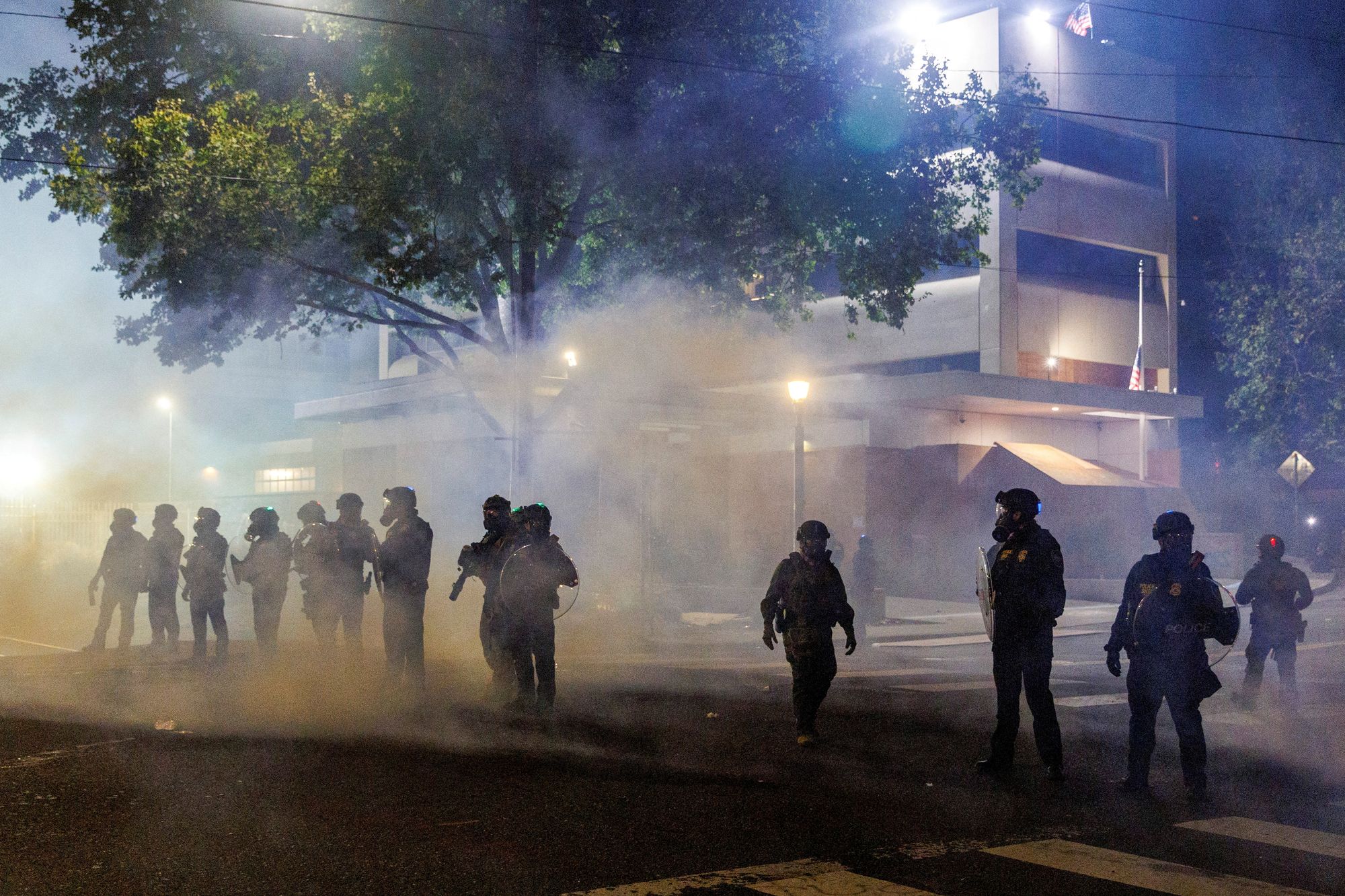The decision to deploy federal agents to Portland has sparked renewed national discussions about immigration control, community security, and the involvement of federal power in local areas.
The decision to deploy troops to Portland represents a new chapter in the ongoing tension between the federal government and certain local administrations. The move was framed as a necessary step to ensure the protection of Immigration and Customs Enforcement (ICE) facilities, which have increasingly been the focus of demonstrations and criticism. By emphasizing security and order, the administration seeks to justify a federal presence in a city where officials and many residents have openly opposed such interventions.
Federal objectives and the reasoning behind the decision
The declared aim of the deployment is to protect federal assets and staff from possible dangers. In past years, ICE locations have been focal points of intense protests, with activists highlighting immigration policies they consider unjust and damaging. Protesters contend that these establishments represent a larger enforcement system that divides families and subjects at-risk communities to continuous fear of detention.
For federal officials, however, the narrative is different. They argue that failing to protect ICE facilities would embolden disruptive groups, undermine the rule of law, and threaten the functioning of essential government services. By sending federal troops, the administration signals a willingness to assert control in areas where it perceives local authorities are unable or unwilling to maintain order.
This move reflects a broader trend in which federal power has been asserted more aggressively in disputes over immigration enforcement. It also highlights the persistent divide between Washington’s policies and the stance of many local governments, particularly in cities that have declared themselves sanctuaries for immigrants.
Community worries and local feedback
The sending of federal forces has provoked significant responses from local authorities, civil liberties organizations, and residents in Portland. Municipal representatives have voiced worries that a military-like presence might heighten tensions instead of alleviating them. Numerous people are concerned that this move could trigger clashes between the community and federal agents, leading to more disorder and diminishing confidence in governmental bodies.
For locals, the action prompts inquiries concerning constitutional entitlements, the right to express oneself freely, and the equilibrium between protection and individual freedoms. Detractors claim that deploying soldiers close to protests might discourage legitimate demonstrations and label opposition as criminal. Additionally, they worry that the heightened militarization of national enforcement might exacerbate community divisions, fostering an atmosphere of fear instead of security.
Supporters of the deployment, on the other hand, maintain that ensuring the protection of federal facilities is a legitimate responsibility of the government. They argue that without intervention, property damage and violent clashes could continue unchecked, undermining both security and stability. This contrast in perspectives underscores the broader ideological divide within the country about the appropriate role of government in addressing social conflict.
Broader implications for national politics
The choice to deploy military forces to Portland should not be seen as an isolated event. It is connected to a broader trend involving federal actions related to demonstrations, immigration discussions, and political divide in the United States. By portraying the defense of ICE centers as a national security concern, the administration presents the matter as more than just a local issue, symbolizing its wider dedication to maintaining law and order.
This approach resonates with supporters who view strong enforcement as essential to maintaining sovereignty and stability. At the same time, it intensifies criticism from opponents who see such measures as authoritarian and dismissive of democratic values. The clash of narratives has become a defining feature of political discourse, shaping how Americans interpret both immigration policy and the use of federal power.
Thinking about the future, the deployment of federal forces in Portland has the potential to create a benchmark for similar actions in other urban areas. Should it successfully deter interruptions, this approach might promote wider use of federal power in situations where city administrations oppose national directives. On the other hand, if conflicts intensify and instability increases, the strategy could strengthen the viewpoint that such initiatives damage community confidence and exacerbate conflicts instead of easing them.
Implications for the coming times
Ultimately, the decision to send troops to Portland reflects deeper questions about governance, democracy, and national identity. It forces Americans to confront the balance between protecting institutions and respecting individual rights, as well as the limits of federal intervention in local matters. For Portland, it means navigating a period of heightened scrutiny, where the city becomes both a symbol and a battleground in a larger political struggle.
For the administration, the deployment offers an opportunity to reinforce its image as a defender of security and order, even as it risks criticism for overstepping boundaries. For residents, activists, and local leaders, it represents a challenge to uphold community values while navigating the realities of federal power.
The controversy underscores how immigration enforcement, public safety, and political identity remain intertwined in ways that define not only local conflicts but also the broader trajectory of the United States. Whether the decision to send troops will achieve stability or deepen divisions remains uncertain, but its impact will resonate far beyond Portland in the ongoing debate about the role of government in shaping the nation’s future.

